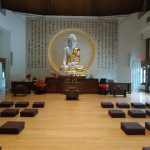
Today Closed UTC+5.5
06:30 AM - 06:00 PM
-
Monday
06:30 AM - 06:00 PM
-
Tuesday
06:30 AM - 06:00 PM
-
Wednesday
06:30 AM - 06:00 PM
-
Thursday
06:30 AM - 06:00 PM
-
Friday
06:30 AM - 06:00 PM
-
Saturday
06:30 AM - 06:00 PM
-
Sunday
06:30 AM - 06:00 PM


